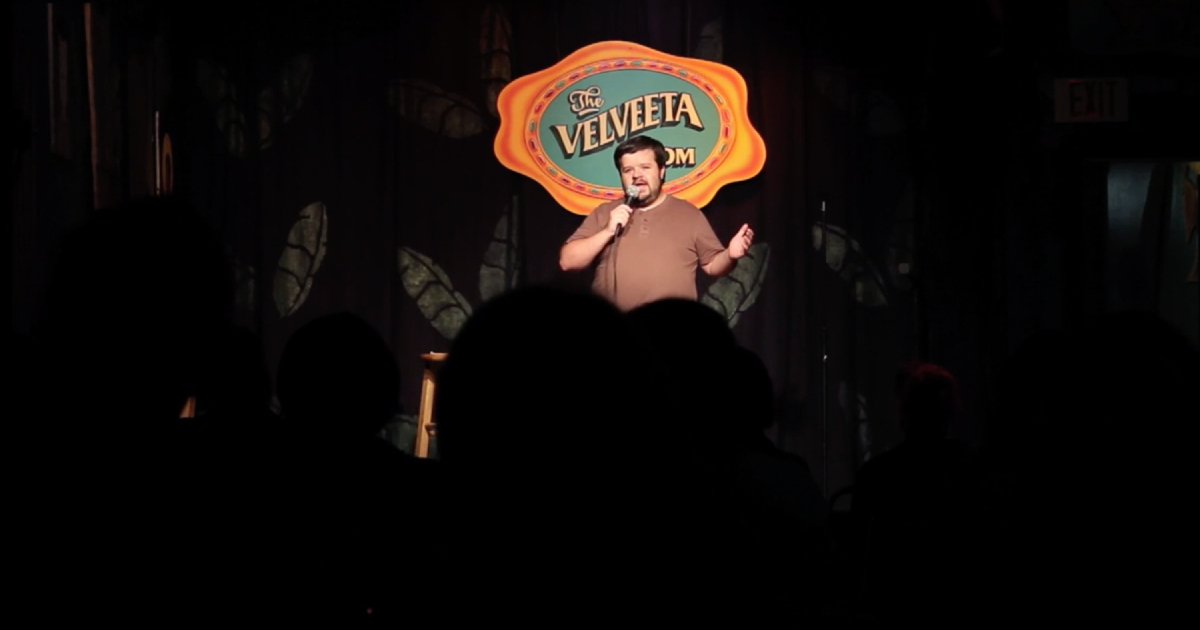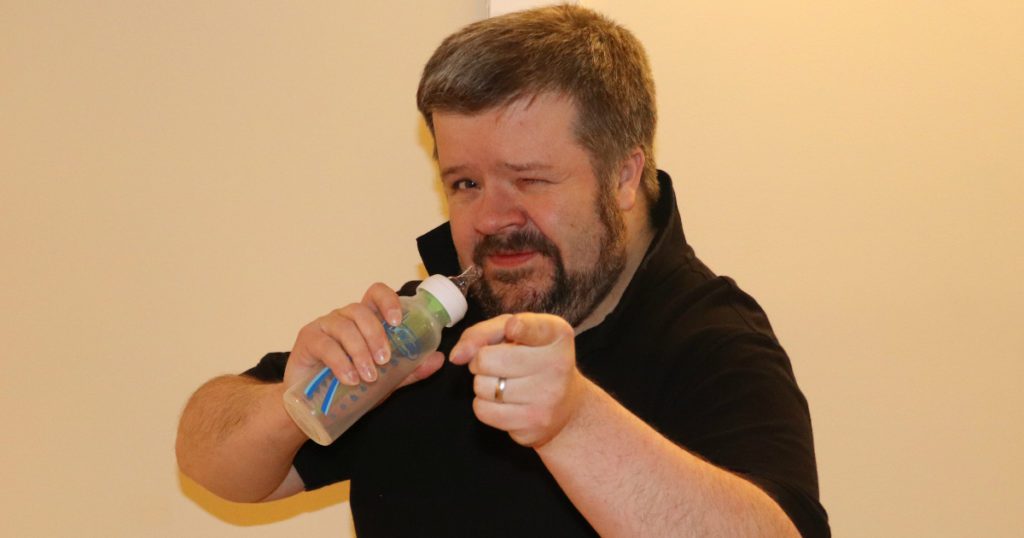One of the most meaningful humor lessons I learned while living in Austin, Texas, didn’t come at one of the standup comedy shows where I regularly performed.
 Rather, it came from the stunned silence following a co-worker’s use of a stereotypical Chinese accent during a training at Travis County Elections.
Rather, it came from the stunned silence following a co-worker’s use of a stereotypical Chinese accent during a training at Travis County Elections.
The group consisted of myself, three Austin hipsters, and a middle-aged Texas woman. When presented with a Chinese surname in a role-playing prompt, the middle-aged woman gleefully responded with the outdated accent you’d see in movies from the ’70s and ’80s saying, “ching-chong.”
As the facilitator, I knew the name on the card ahead of time and realized what she was doing as soon as she squinted her eyes for stereotypical effect.
I watched those squinted eyes gleam with joy at the laugh she expected, then contract with horror when her joke didn’t land, and finally cast down in shame, where they remained.
I could’ve stopped her when I saw it coming, generously laughed it off when it didn’t land, or rushed on to the next prompt to spare her the embarrassment. Instead, I let it sit there for a good long while absorbing the moment and letting the silence speak for us all.
I was fascinated by the beautiful contrast between the hilarity she thought she was bringing to the table and the uncomfortable silence it received.
As time proceeded, I came to know her better and saw that my coworker’s clunky attempt at humor was more a result of her upbringing than of her heart. She was simply going for, what in her social circle, was an easy laugh.
Outside of that circle, it was cruel and offensive. That’s often the case with comedy.
Connecting with people is hard so comedians often go for the lowest-common-denominator, thinking they’re the easy targets. Denominators are useful in division, but tend to get in the way when you’re working with equations.
At the time, I understood a lot about going after easy targets. From 2011 through 2013, I performed standup comedy several times a week in Austin. I was very green when I started (and still pretty green when I left) but I learned an awful lot.
My easy targets from then may seem like a familiar list today: mainstream media (for CNN’s hiring of disgraced whoremonger Elliot Spitzer), elite politicians (Mitt Romney’s family vacation looked like an ad for erectile dysfunction drugs), and basic human compassion (babies are the worst STD you can get).
 They weren’t spectacular jokes but they got big enough laughs to serve as placeholders while I sought something more worthwhile to say.
They weren’t spectacular jokes but they got big enough laughs to serve as placeholders while I sought something more worthwhile to say.
It took me a long time to find the courage to embrace my own vulnerability instead of going after easy targets. Once I did, I immediately saw the value of not simply entertaining other people but connecting with them.
That’s part of the reason I started this column with relatively light-hearted thoughts that are authentic to my everyday life.
While I may throw in a few digs at my cold New England neighbors, those blindly following conventional wisdom, or scratch-lotto-ticket enthusiasts, I do so from a place of understanding because I see myself in their behavior.
By far the most common butt of my jokes is me (and not just because I have narcissistic tendencies) because it allows me to mine my personal experiences for shared truths.
Contrasting my societal observations with my own related impulses creates truthful meanings for me. The feedback I’ve gotten lets me know that many of you find these “truths” meaningful as well, which consistently amazes me.
We have a societal soft spot for bad humor told by good people (dad jokes) as well as an aversion to exceptional humor delivered by bad people (Bill Cosby). Yet our culture’s comedy sensibility seems like it’s gotten stuck in the easy-target mindset.
Toilet paper was our universal topic last month, which now has divided into two denominators with very little in common: injecting disinfectants (Lysol lattes) and social distancing backlash (Let My People Go-lf).
They aren’t spectacular jokes but they get big enough laughs to serve as placeholders while we seek something more worthwhile to say.
The danger is that we’ll keep shifting towards lower and lower common denominators until all that’s left are memes and TikToks ringing as hollow in time’s echo chamber as a “ching-chong” rings today.
My hope is that we’ll soon move past this phase and see the value of not simply entertaining each other, but connecting with each other too.
This Friday, (May 01, 2020) at 8 PM eastern time, I’m performing in a storytelling showcase to raise money and awareness for Hands on Hartford, a nonprofit providing food, housing and health services for needy families.
The event is free and open to all, with donations graciously received. Connecticut’s small, but mighty, storytelling scene excels at finding personal, poignant, and oftentimes, funny ways to express themselves with vulnerability and authenticity. I hope you’re able to join us for an enjoyable evening of entertainment and connection.
You may register for the show through either Event Brite or Facebook.
If you enjoy my humor writing, please subscribe below.
If you want to syndicate this column, you may contact me here to discuss the details.
You may notice that I’ve disabled commenting on this post. I’d love to hear your thoughts by email at [email protected].
Check out The Uncommon Discourse Podcast, where acclaimed storyteller Chris Gaffney reads and discusses ten of his most popular humor columns.

Each episode is under ten minutes long and features Chris reading a favorite article along with a brief description of why the article means so much to him.
Find Season 01 on iTunes, Stitcher, TuneIn.com, or stream/download episodes here: https://uncommondiscourse.com/podcast.